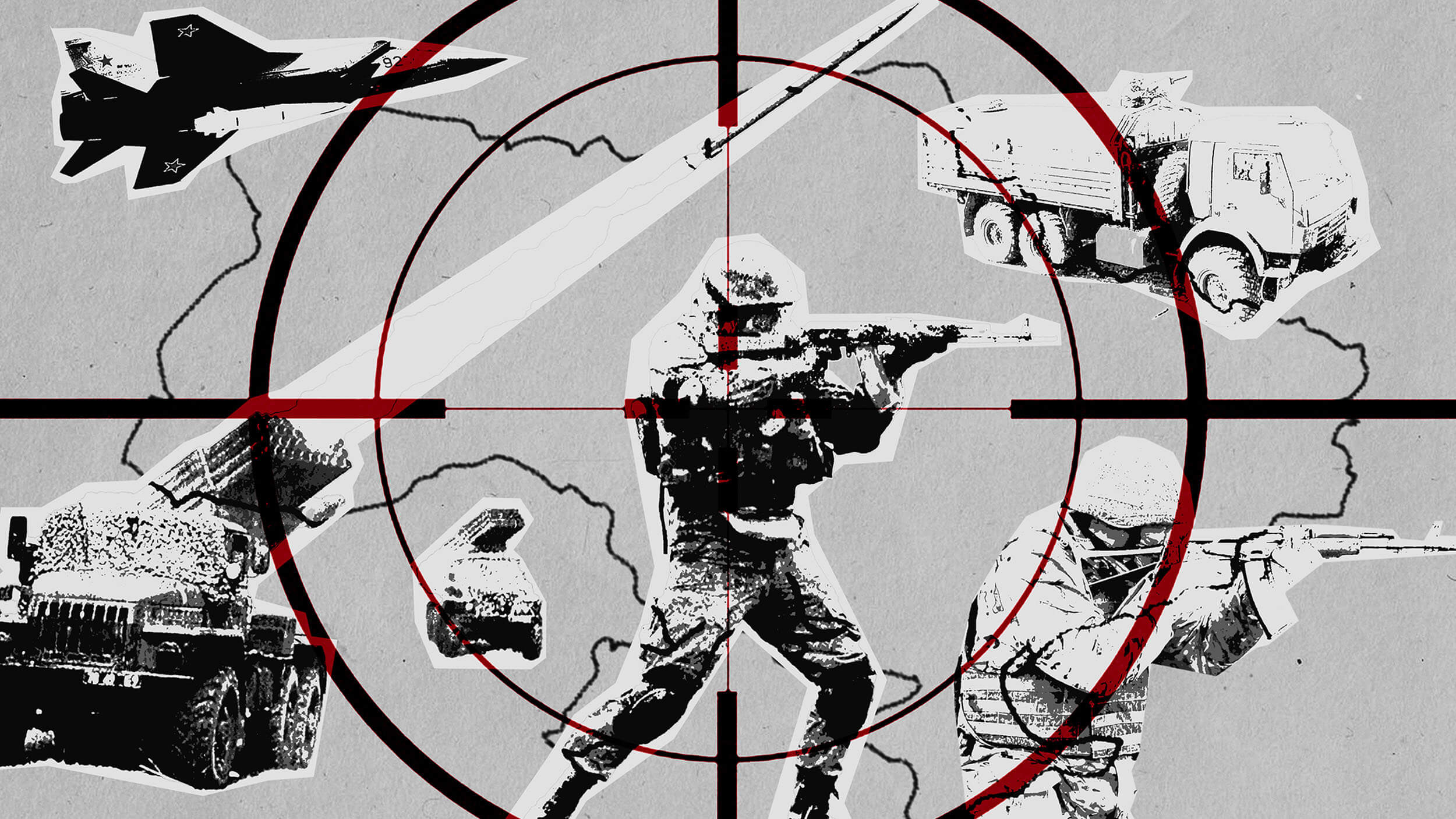By Casey Michel, Director, HRF Combating Kleptocracy Program
Over a year into Russia’s monstrous invasion of Ukraine, U.S. policymakers still shy away from recognizing Moscow’s brutality for what it is: genocide.
Despite all of the evidence piling, Washington has still refrained from formally declaring Russia’s war as one of genocide. And even though President Joe Biden, and even former President Donald Trump, have referred to Russia’s viciousness as “genocide,” the U.S. has still avoided outright recognition as such.
But that may soon change. In both the Senate and the House, a pair of resolutions have continued gathering both momentum and signatories on both sides of the aisle, all aimed at one goal: finally declaring Russia’s war as one of genocide. Dozens of legislators have already signed on to co-sponsor the resolutions, bringing together unexpected bedfellow from Sen. Tim Kaine (D-VA) to Sen. Marsha Blackburn (R-TN) in support of the designation. Just last week, the House Foreign Affairs Committee held a hearing on the topic, with both the Republican chairman and Democratic ranking member calling Russia’s bloodletting in Ukraine “genocide.”
Such calls have been echoed by other civil society groups and legal experts, finding that Russia is “responsible for direct and public incitement to commit genocide.” Other Western partners like Ireland and Lithuania have also issued formal recognitions of genocide.
Nor is it just civil society groups or allies elsewhere. Increasingly, academic and scholarly voices are coming around to recognize Russia as a genocidal regime, striving to eliminate Ukrainian nationhood and identity outright. Leading scholars like Yale’s Timothy Snyder and Harvard’s Serhii Plokhy have endorsed these calls to recognize “the Kremlin’s genocidal intent,” which “are so clear and so evident that a congressional declaration is not only advisable but absolutely necessary in the spirit of preventing further atrocities.” (The Human Rights Foundation has already signed a letter calling for such a designation.)
Indeed, nearly 15 months after Russia initially launched the war, such a conclusion – that Moscow remains bent on wiping out the Ukrainian identity, regardless of the costs or consequences – remains increasingly inescapable. The latest piece of evidence of such genocidal intent came with the International Criminal Court’s recent indictment of Putin, predicated on his seizure and relocation of thousands of Ukrainian children, all aimed at “stripping [them] of their Ukrainian identities.” Such a hideous crime would be more than enough to apply the label of genocide to Russia’s criminal war. As the Washington Post’s editorial board related a few months ago, such actions not only contravene the United Nation’s Genocide Convention but echo the “first convictions at the Nazi war crimes trials [which] were for child abductions.”
But stealing children and forcing them into re-education camps is hardly the only genocidal ingredient apparent in Russia’s heinous brew. There were the torture chambers dedicated to those who spoke the Ukrainian language. There were the massacres in places like Bucha and Irpin, with mass executions of Ukrainian citizens. There is the ongoing targeting of civilian infrastructure, with no military import whatsoever, devastating Ukrainian communities and Ukrainian families — people guilty only of being, and remaining, Ukrainian.
To be sure, Russia’s genocidal campaign in Ukraine is hardly assured of success. If anything, it was Putin’s blinkered invasion that steeled the Ukrainian nation overall, birthing a new origin story for both a nation and state targeted by Russian imperialists.
But that failure is hardly a sufficient defense against claims of Russian genocide. After all, the legal definition of genocide includes those with the “intent to destroy, in whole or in part,” a people. Over and again, Russia’s cruelty has specifically aimed at eliminating any vestiges of Ukrainian identity in the people and places it has seized.
Nor has Russian leadership masked their intents. Routinely referring to Ukrainians as “non-humans,” Russian officials and propagandists alike have regularly denied not only Ukrainian agency but Ukrainian identity itself. In Moscow’s eyes, Ukraine is not only a non-state; it, and the Ukrainian nation, is a fabrication wholesale.
None of this has been subtle. There are those like former Russian President Dmitri Medvedev, who has claimed that Ukraine “will cease to exist.” There are Duma members who claimed that “the Ukrainian nation does not exist.” There are, as the Institute for the Study of War summarized, any range of “prominent Russian political [who] continue to promote openly genocidal rhetoric against Ukraine” — all led by Putin, who continues to try to “erase the notion of a Ukrainian people.”
Again: None of this is new. Just look back to the beginning of the war, when one of Russia’s leading propaganda organs published an essay claiming it is “impossible for Ukraine to exist as a nation-state” — and that “Ukrainism is an artificial anti-Russian construct.” The article captured the entire ethos of Russia’s war: demolishing not only the Ukrainian state but the realities of Ukrainian identity wholesale — and erasing “Ukrainism” once and for all. As Johns Hopkins professor Eugene Finkel wrote, “It is hard to imagine a more actionable template to destroy a national group.”
At this point, the evidence of Russia’s genocidal designs has become a deluge. And the evidence only continues to mount of a genocide playing out in the areas that Moscow still controls. It’s long past time for American policy-makers to finally recognize the Kremlin for what it is: a regime frothing with genocidal designs, all of it aimed at a country — and a nation — it refuses to recognize even exists.
Casey Michel is the director of the Human Rights Foundation (HRF)’s Combating Kleptocracy Program.
